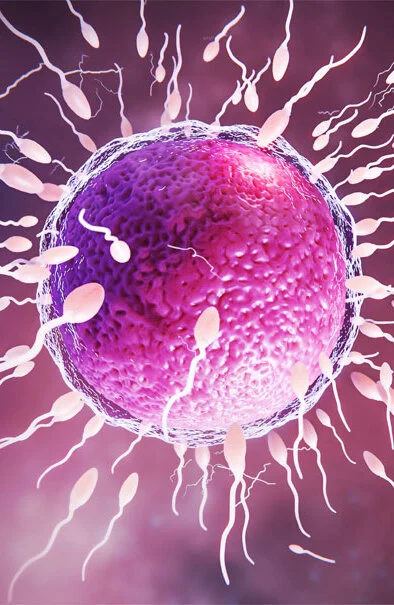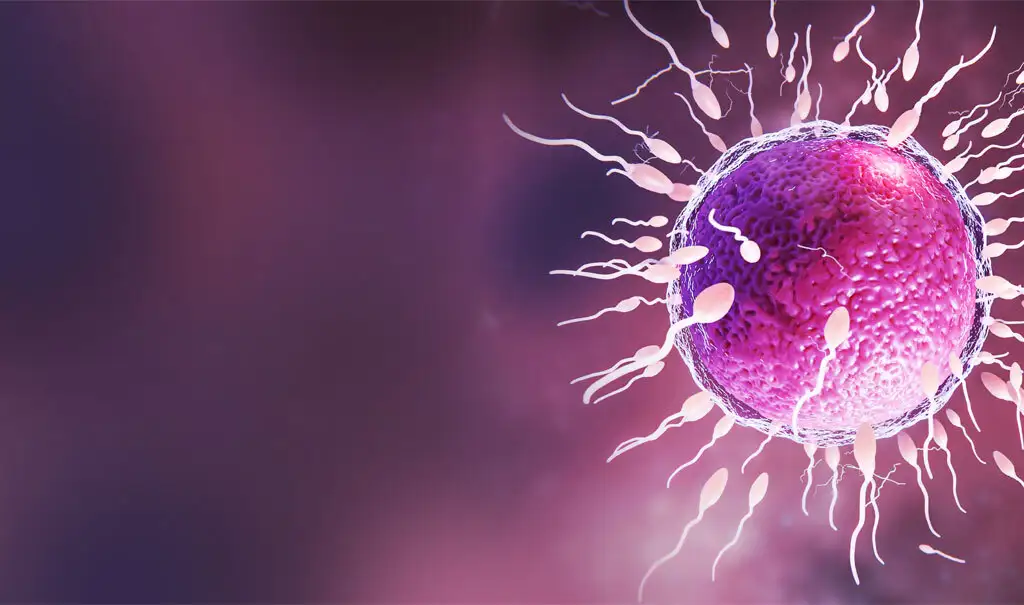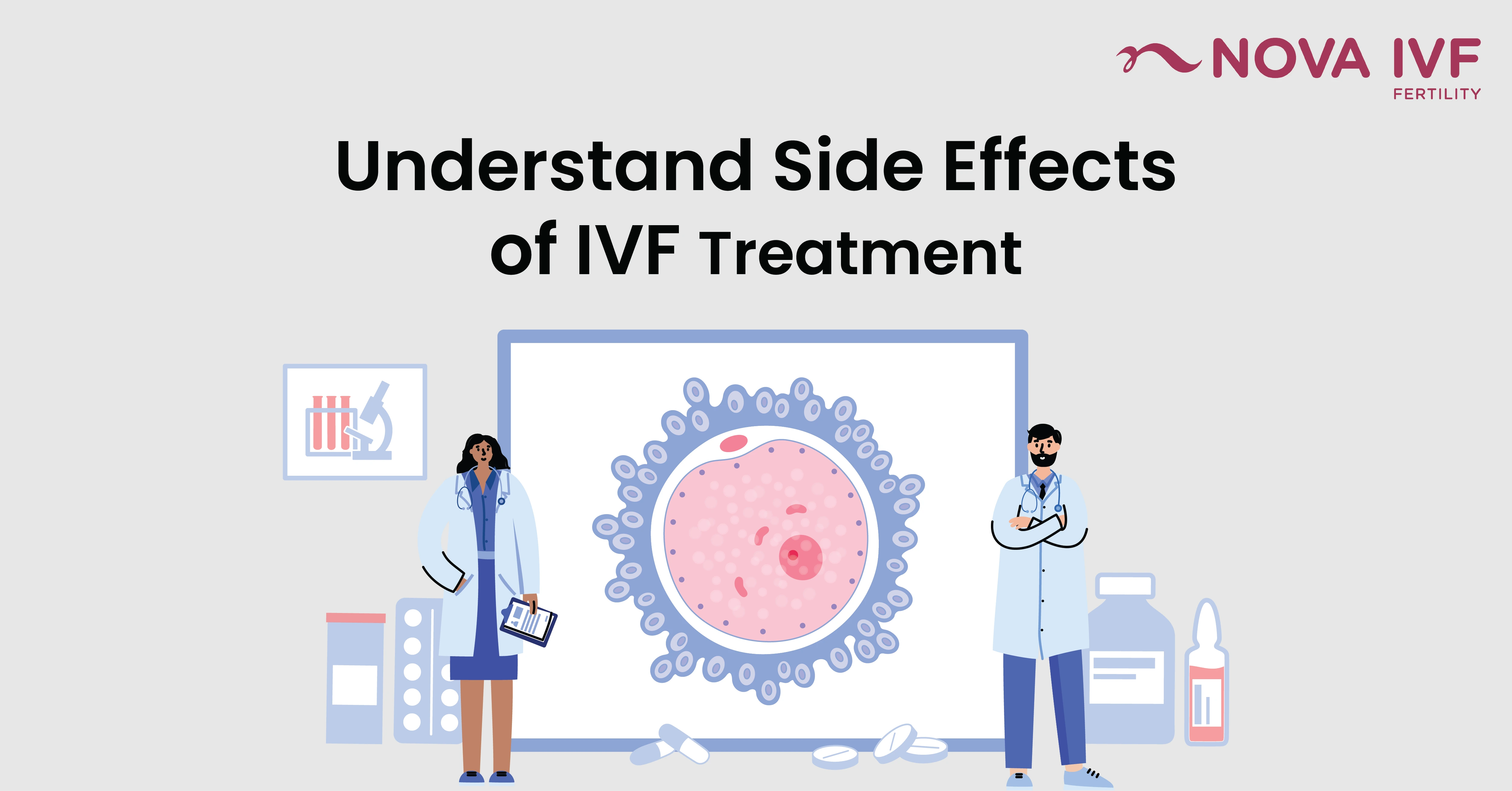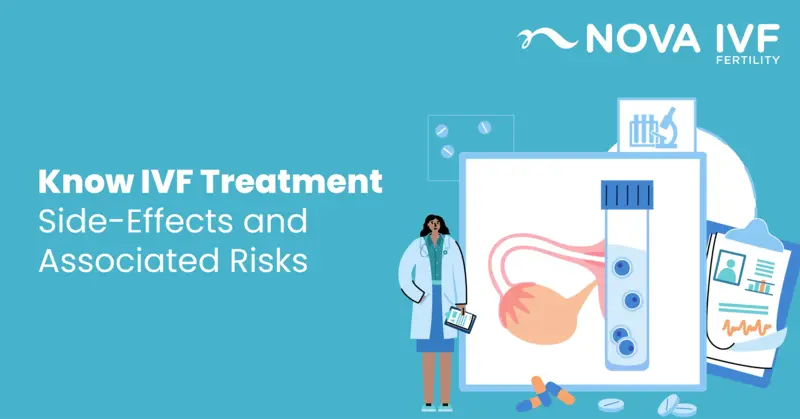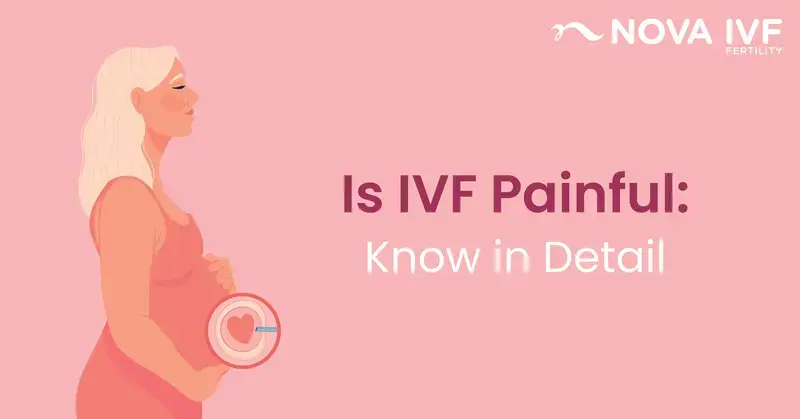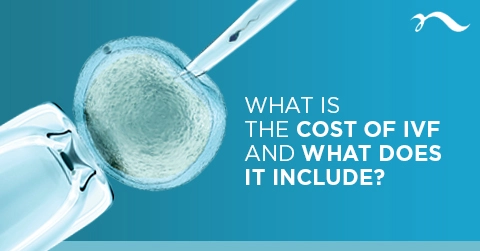Brief History
IVF technology has been around for more than three decades and has shown promise. Steptoe and Robert Edwards began working together on human IVF research in 1968. In 1977, they achieved a ground-breaking milestone by successfully conceiving the world's first baby through IVF. The baby, named Louise Brown, was born on 25 July 1978 at Oldham General Hospital in Greater Manchester, UK.
What is IVF?
The term ‘in vitro’ means that the process occurs outside the body in a lab dish. IVF is a procedure that involves the fusion of a woman's egg and a man's sperm in a laboratory dish. During fertilisation, the sperm attaches to and penetrates the egg, leading to the formation of an embryo. The resultant embryos are then replaced back into the uterus.
Why Is IVF Treatment Performed?
In vitro fertilisation is elected for a wide range of infertility conditions. For instance, women who have damaged, blocked, or missing fallopian tubes, or men who have sperm abnormalities can consider this treatment. This can also include unexplained infertility and those who have been unable to conceive with other treatments.
IVF can be considered if you have any of the following issues:
IVF Process Step By Step
Before the beginning of the IVF treatment, blood work and other tests are done. Then, medical practitioners put the woman on appropriate medication to manipulate the natural menstrual cycle. The IVF treatment cycle starts at the beginning of the woman’s period. A transvaginal scan is done to determine the size of the ovaries and the presence of ovarian cysts if any. Afterwards, the following are the basic stages in the IVF treatment and embryo transfer process:
01
Ovulation
02
Collecting The Eggs
03
Retrieving The Sperm
04
Insemination
The eggs are monitored regularly to ensure that the division of cells or fertilisation is taking place. After the egg is fertilised, it becomes an embryo. When the embryos reach the blastocyst stage, some fertility centres offer a test called preimplantation genetic testing (PGT). The PGT checks the embryo for irregularities in chromosomes. This way, during the transfer, only one or two viable embryos are implanted in the uterus. The specialist will administer hormonal injections and other medications to prepare the uterine lining for the embryo's implantation. At times, a single sperm is injected directly into the egg in a process known as intracytoplasmic sperm injection (ICSI).
05
Embryo Implantation
After The Procedure
After the embryo transfer, you may be advised to rest for the day, although most women can resume normal activities the next day. For 7 to 9 weeks after the embryo transfer, women undergoing IVF treatment may need to take daily shots or pills of the hormone progesterone. This hormone helps prepare the uterus lining for the embryo to attach and supports its growth after implantation. Progesterone is often continued for 8 to 12 weeks after pregnancy to prevent miscarriage.
Around 12 to 14 days after the embryo transfer, a pregnancy test will be done at the clinic to check for pregnancy. During IVF, some may experience the following side effects from the fertility medications used during ovulation stimulation:
- Vomiting or nausea
- Headaches or hot flashes
- Enlarged ovaries, abdominal pain, and bruising from injections
- Breast tenderness, bloating, spotting, constipation & cramping
IVF can be physically and emotionally challenging, causing anxiety and depression for some. It's essential to discuss with your specialist about your feelings and seek support throughout the process.
Positive Pregnancy Test
After the frozen embryo transfer, you may be required to wait for about 15 days before taking a pregnancy test. Your doctor will schedule an appointment to do a blood test to determine if you're pregnant.
If the clinic's pregnancy test shows positive, you are pregnant, and the IVF pregnancy process was successful. You will continue to be under the care of the fertility clinic, and they will monitor your pregnancy development with ultrasounds and blood tests until you're 8 to 10 weeks pregnant. After that, you'll be transferred to a regular ob-gyn specialist who can take care of you during your pregnancy, known as prenatal care.
Negative Pregnancy Test
If the test results are negative, it can be disheartening. Your medical specialists will be understanding and supportive during this time. Remember, it's common for couples to experience a previous failed embryo transfer before achieving IVF pregnancy success in a later cycle.
You can surround yourself with supportive friends and family who will ensure that you are supported through each step of your journey, as fertility journeys can have ups and downs. A negative test doesn't mean your journey is over. Your medical specialist will give you an honest assessment of further fertility treatments, and together, you can decide on your next steps, whether it's pursuing other fertility options or another IVF treatment cycle.
New Hope
If the test is negative and you are not pregnant, your doctor will advise you to stop taking progesterone, and you should get your period within a week. When starting a new IVF cycle, some patients and doctors may choose to wait an additional cycle for rest, while others may resume treatment sooner. This decision depends on various factors like your health and ovulation cycle. If you don't get your period or have any unusual bleeding, make sure to contact your doctor. Your specialist will consult you at every stage and if you are interested in trying another round of IVF, your doctor may suggest ways to improve your chances of getting pregnant through IVF treatment.
Benefits of IVF Treatment
1. Overcoming Fertility Issues:
Patients struggling with infertility or failed previous IUI cycles or blocked fallopian tubes can elect IVF to improve their chances. Another leading cause of difficulty in conception is a low sperm count in men. Such sperm may also have low motility, making it challenging to fertilise the egg. Fertility specialists focus on treatments like IVF, which can address this issue effectively. With an IVF treatment, the egg is fertilised in a laboratory outside the body, bypassing the traditional conception process. This treatment offers a promising solution for couples facing these obstacles in starting a family.
2. Ability to choose embryos
IVF helps you as future parents select viable embryo used to get you pregnant. IVF treatment also gives the provision to scan the embryos for any abnormalities or conditions. This way, you do not need to worry about passing along any genetic conditions to your baby. Fertility specialists are able to grade and rate embryos so that you can choose the most viable for embryo transfer. This is possible through a process called preimplantation genetic screening, or PGS/PGT-A.
3. Flexibility & Control
Couples facing infertility, or those with genetic disorders, older couples, single women, surrogates, and same-sex couples, can all consider IVF treatment to diagnose and overcome infertility. The procedure provides better regulation and control over the timing for the patient. Both the sperm and your egg can be cryopreserved for future use. This way, depending on when you want to get pregnant, the ideal time for IVF can be chosen, giving you the flexibility to plan for the best chance of success.
IVF Risks
IVF treatment comes with several risks:
1. Multiple births
IVF treatment means increasing the risk of multiple births if more than one embryo is transferred to your uterus. A pregnancy with multiple foetuses carries a higher risk of early labour and low birth weight than pregnancy with a single foetus does. Also, multiple births can lead to premature labour.
2. Premature delivery
Premature delivery is when the baby is born before completing a full term in the womb. This can lead to some risks and health concerns. IVF pregnancies can have a slightly higher risk of premature delivery compared to natural pregnancies. For these reasons, fertility specialists closely monitor IVF pregnancies to reduce this risk and ensure a healthy outcome for both, the mother, and the baby.
3. Miscarriage
The risk of miscarriage via IVF pregnancy is as similar that of a natural pregnancy, although the rate can increase with the woman’s age.
4. Ectopic pregnancy
With IVF, some women may experience an ectopic pregnancy, which happens when the fertilised egg embeds outside the uterus, often in a fallopian tube. Unfortunately, the fertilised egg does not survive outside the uterus, making it impossible to continue the pregnancy.
5. Egg Retrieval Complications:
During IVF, as the doctor uses a specialised needle to collect eggs, the needle can cause bleeding, infection or damage to the bowel, bladder, or a blood vessel. There are also risks associated with sedation or general anaesthesia, if used during the IVF procedure.
How do you prepare for IVF Treatment
IVF treatment for pregnancy can be a physically demanding journey. There are several steps that you and your partner have to take to better prepare for the treatment.
1. Medical Tests
Couples may have to undergo the following tests before the in vitro ertilisation procedure:
Uterine Exam: Your doctor may test the lining of your uterus. This may involve a sonohysterography, where fluid is injected through your cervix into the uterus for ultrasound images, or a hysteroscopy, where a thin, flexible, lighted telescope (hysteroscope) is inserted through your vagina and cervix into your uterus.
Ovarian Reserve Testing: This test helps check the quantity and quality of your eggs before the IVF. It involves checking hormone levels like follicle-stimulating hormone (FSH), estrogen (estradiol), and anti-mullerian hormone in your blood during the early days of your menstrual cycle. An ultrasound of your ovaries might also be done to predict how the ovaries can react to medications.
Semen Analysis: The specialist carries out semen analysis to assess the quality of the male partner's sperm. The test evaluates sperm count, motility (movement), and morphology (shape). This analysis helps determine the best approach for fertilisation. Your specialist can advise standard in vitro fertilisation or intracytoplasmic sperm injection (ICSI) if sperm quality is an issue.
Screening: Both you and your partner will be screened for infectious diseases, including HIV.
2. Lifestyle Improvements
To better prepare and optimise the chances of success during IVF, patients should follow these guidelines:
Food Intake: Patients are advised to adopt a healthy diet that includes whole foods. A diet packed with nutrients helps boost your immunity, which can help you fight infections while undergoing IVF treatment. Foods like refined carbs, fried foods, soda, alcohol, and fast foods are very heavy to digest and can hamper your sleep cycles as well. Stay hydrated by drinking plenty of water.
Be Active & Exercise: Experts advise patients to engage in regular, light to moderate exercise like walking, yoga, and stretching before IVF. Avoid excessive or strenuous exercise, especially during the in vitro fertilisation cycle, until approved by the doctor.
Lifestyle Improvements: You will be advised to stop smoking and drinking alcohol both, before and during the in vitro cycle as it can harm egg quality and reduce chances of getting pregnant. Couples undergoing the treatment will be briefed to take steps to improve their lifestyle and sleep hygiene, which can also mitigate many current lifestyle diseases. Research has found that corrective measures to improve one’s health and lifestyle have reversed conditions like obesity, high BP, and certain types of diabetes, which may be playing an underlying role in your infertility issues.
Manage Stress: It is essential to reduce stress by practicing meditation, yoga, or spending time outdoors. Also, those undergoing the treatment require adequate rest and relaxation time to improve overall health and minimise stress during the in vitro fertilisation IVF journey.
How much does IVF cost?
Generally, the charges for IVF treatment can start from Rs 1,45,000 per cycle. The costs may vary based on the fertility hospital you choose. For instance, in vitro fertilisation treatment in a tier I city will be more expensive than in a clinic in tier II and II cities.
The cost of your IVF treatment can vary as they depend on factors like:
- Specialist consultation
- Lab tests
- Medication
- Egg Retrieval
- Sperm prepping
- Anaesthesia
- Cost of embryo storage
- Preimplantation genetic screening and diagnosis (PGS and PGD)
- Intracytoplasmic sperm injection (ICSI), if elected
- Your health insurance cover
- Non-medical expenses, like travel to and from your clinic to residence.
Should IVF Be the First Choice for Fertility Treatment?
Normally, IVF is the first choice for fertility treatment only if the couple has one or more of the issues outlined earlier. Fertility drugs, surgery, intra-uterine insemination, etc. are the options for treatment of infertility, if applicable, before attempting In-vitro Fertility treatment at present.
IVF may involve more than one cycle if the first round of fertilisation and/or implantation is not successful. The cost involved in the whole process is another factor that has to be considered before deciding on in-vitro fertilisation.
Frequently Asked Questions
1. What factors influence the success of in vitro fertilisation (IVF)?
2. Is in vitro fertilisation (IVF) the right option for us?
3. How long does the in vitro fertilisation process take from start to finish?
Who needs multiple IVF cycles?
- Presence of ovarian cysts
- Delay in ovarian response to fertility drugs
- Severe ovarian hyperstimulation
- Premature ovulation
 Infertility Counselling
Infertility Counselling Female Infertility Treatment
Female Infertility Treatment Andrology Treatment
Andrology Treatment Fertility Enhancing Surgeries - Female
Fertility Enhancing Surgeries - Female Fertility Enhancing Surgeries - Male
Fertility Enhancing Surgeries - Male Endoscopy Treatment
Endoscopy Treatment IUI Treatment
IUI Treatment IVF Treatment
IVF Treatment ICSI Treatment
ICSI Treatment Advanced IVF Solutions
Advanced IVF Solutions Embryology
Embryology Vitrification Egg, Embryo, Sperm Freezing
Vitrification Egg, Embryo, Sperm Freezing Preimplantation Genetic Testing (PGT)
Preimplantation Genetic Testing (PGT) Donation Program Embryo / Egg / Sperm
Donation Program Embryo / Egg / Sperm Self-cycleTM IVF
Self-cycleTM IVF

 Self-cycleTM IVF
Self-cycleTM IVF